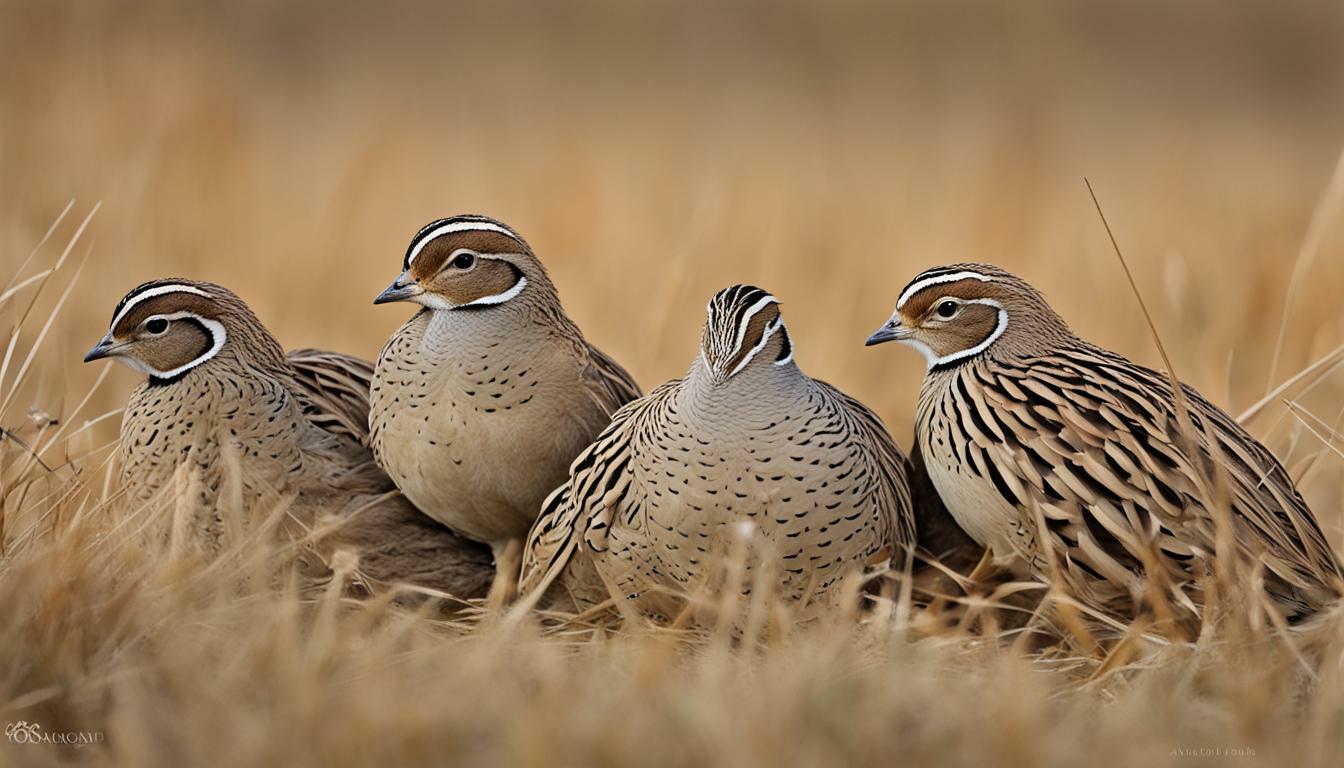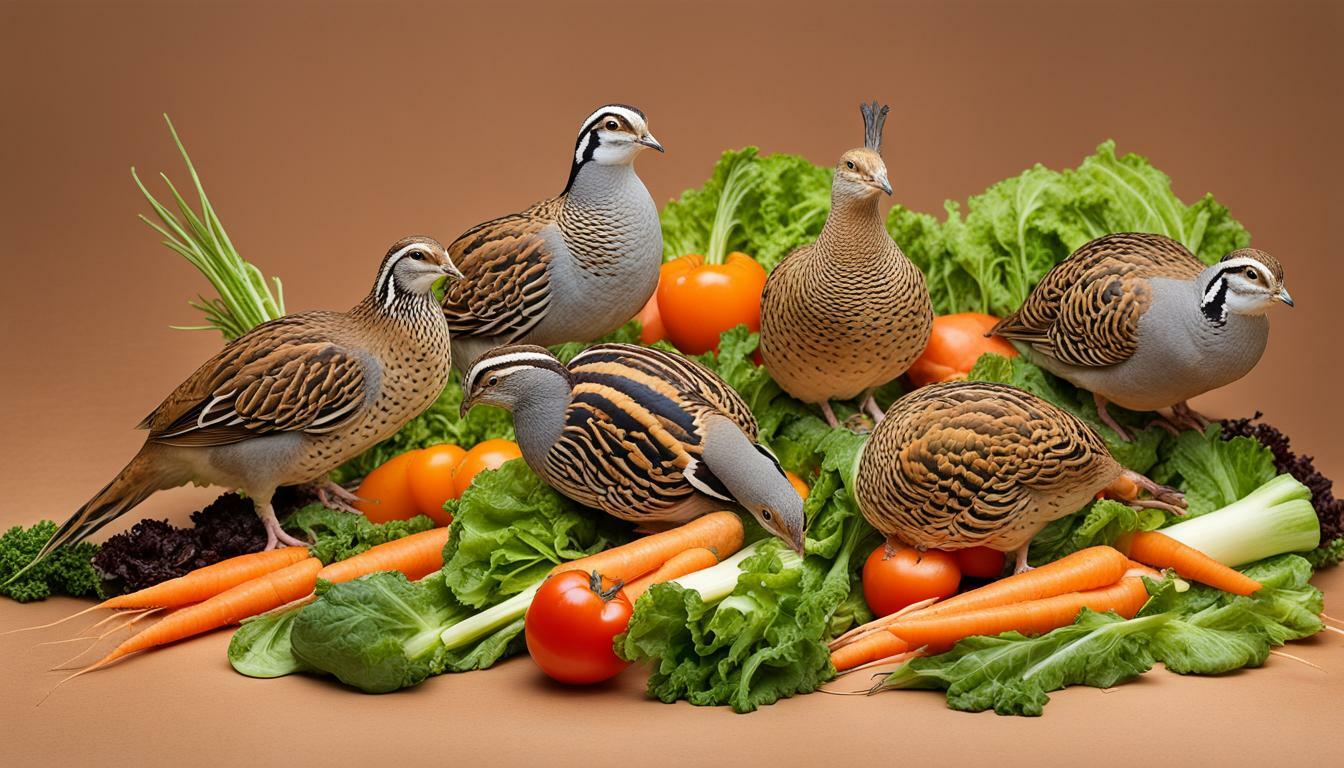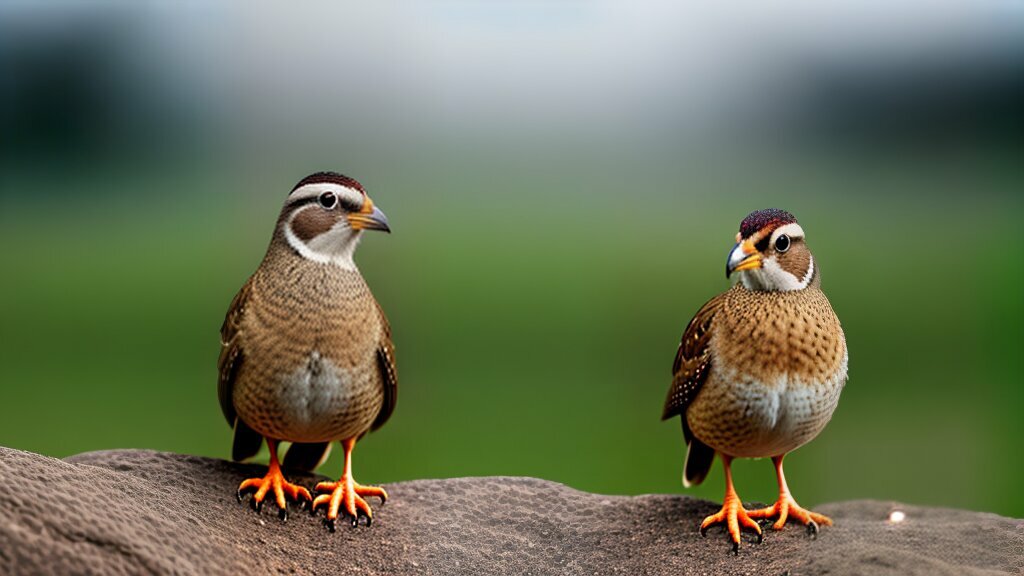How Do Quails Sleep?

Table of content:
- Do quails sleep at night?
- Where do quails sleep? On the ground or elevated?
- How long do quails sleep each day? What is their sleep cycle?
- Do quails sleep together in groups or alone?
- Do quails tuck their heads under their wings when sleeping?
- Do domesticated quails have different sleeping habits than wild quails?
- Do baby quails sleep differently than adult quails?
- What are signs that a quail is sleeping versus awake?
- Can quails sleep standing up?
- Are quails light or heavy sleepers? Easy or hard to wake up?
- Final Thoughts
Quails are unique little birds with some interesting sleeping habits. Understanding how quails rest and recharge can help quail owners better care for their birds. Wild quails also have specialized sleeping behaviors to stay safe from predators. Let’s explore the fascinating sleep patterns of these small game birds!
Do quails sleep at night?
Yes, like most birds, quails are diurnal and sleep at night. Their sleep is not continuous though. Quails will take short naps sporadically through the night. These brief sleep sessions usually last only a few minutes at a time.
In the wild, quails need to stay vigilant against nocturnal predators. Sleeping in short bursts allows them to frequently scan for danger. Domestic quails will also wake up periodically in the night, a leftover instinct from their wild ancestry.
Where do quails sleep? On the ground or elevated?
Wild quails roost on the ground, while domestic quails prefer elevated perches.
Ground-dwelling wild quails sleep in small depressions in the soil called “forms.” They use their legs and wings to create shallow dips that allow their bodies to sit lower than the surrounding vegetation. This helps camouflage quails from predators like foxes, coyotes, and owls during the night.
Pet quails prefer perching off the ground while sleeping. In captivity, provide your quails with boxes, branches, or other surfaces to roost on at night. Placing perches higher up gives them a sense of safety. Ensure the perches are low enough that quails can easily fly up to them though.
How long do quails sleep each day? What is their sleep cycle?
On average, quails sleep around 10-14 hours per day. However, their sleep is broken up into much shorter sessions.
Quails experience unihemispheric slow-wave sleep. This means half their brain sleeps at a time, while the other half remains awake and alert. This light, sporadic sleep allows them to awaken fully at any sign of danger.
Domestic quails follow a crepuscular schedule, meaning they are most active at dawn and dusk. They will take short 1-2 hour naps spaced throughout the day and night. Their sleep is lighter at night for predator awareness.
Do quails sleep together in groups or alone?
In the wild, quails sleep in communal groups called coveys. These groups can contain 6-30 birds huddling together on the ground. Sleeping together provides safety in numbers and allows them to share body heat.
Pet quails are less inclined to covey while sleeping. They will still tolerate roosting side-by-side with their cagemates. But domestic quails tend to spread out more when offered multiple perches or sleeping areas.
Do quails tuck their heads under their wings when sleeping?
Yes, quails often tuck their heads backward under their wings while sleeping. This serves several purposes:
- Keeps their head and eyes warm
- Blocks out light to aid sleep
- Conceals their head from predators
- Allows one eye to remain exposed to watch for danger
You may notice pet quails napping with their heads buried in their back feathers. This demonstration of their natural instincts is perfectly normal behavior.
Do domesticated quails have different sleeping habits than wild quails?
Domestic quails retain many natural sleeping behaviors from their wild counterparts. However, life in captivity does lead to some key differences:
- Less vigilance: Pet quails usually sleep deeper and longer than wild quails, since they don’t need to evade predators.
- Higher perching: Wild quails roost on the ground, while pet quails prefer elevated perches.
- More solo sleeping: Captive quails are less likely to huddle together in a covey while sleeping.
- Consistent schedule: With regular lighting and feeding, domestic quails follow a daily circadian rhythm. Wild quails have less sleep consistency.
- No migratory response: Changes in day length won’t trigger a seasonal migratory response in pet quails as it does for wild quails.
Overall though, most innate quail sleeping behaviors remain intact even after domestication.
Do baby quails sleep differently than adult quails?
Baby quails have a much higher sleep requirement than adult quails. They need to sleep around 18 hours per day in their first week of life.
Young quails also cannot regulate their body temperature well. For the first 10 days, they are unable to keep themselves warm without an external heat source.
To meet these needs, breeders use brooder lamps to provide external heat for hatchlings. Baby quails huddle together under the lamp’s glow up until 2-3 weeks old. By 4 weeks old, young quails transition to adult-like sleeping habits.
What are signs that a quail is sleeping versus awake?
It can be tricky to identify sleep in quails, but here are some tell-tale signs:
Sleeping:
- Eyes closed
- Head tucked under the wing
- Beak buried in scapular feathers
- Standing on one leg
- Breathing slow and steady
- No vocalizations
Awake:
- Eyes open
- Head upright and alert
- Beak exposed
- Standing on two legs
- Interacting with environment
- Making chirping sounds
Can quails sleep standing up?
Yes, quails are able to sleep while standing. In fact, they usually sleep in an upright position rather than lying down.
Wild quails sleep with their legs slightly bent to quickly spring into motion when startled. Perching pet quails often sleep balanced on their feet while grasping a roosting bar.
The ability to sleep standing gives quails a survival advantage. They can awaken quickly to flee predators and other threats approaching the night.
Are quails light or heavy sleepers? Easy or hard to wake up?
Quails are incredibly light sleepers and awaken at the slightest disturbance. This vigilant sleep pattern comes from their prey animal instincts.
In the wild, quails rely on their acute sense of hearing to detect predators while sleeping. They often keep one ear exposed while resting to listen for danger.
Even domestic quails are easy to rouse from slumber and will startle awake to sudden sounds and movements. Their sleep remains alert in case they need to rapidly escape a perceived threat.
Final Thoughts
Understanding natural quail sleeping habits allows owners to better meet their birds’ needs. Accommodating their desire for elevated roosts, darkness at night, and periods of uninterrupted rest results in happier, healthier pet quails. Quails demonstrate some amazing adaptations that let them sleep safely in the wild. Observing your own quails’ endearing sleep behaviors can give you an appreciation for the ingenuity of these unique birds.
Welcome. I’m Adreena Shanum, the proud owner of this website, and I am incredibly passionate about animals, especially poultry. I founded adreenapets.com as a labor of love, stemming from my desire to share my knowledge and experiences with poultry enthusiasts worldwide.




